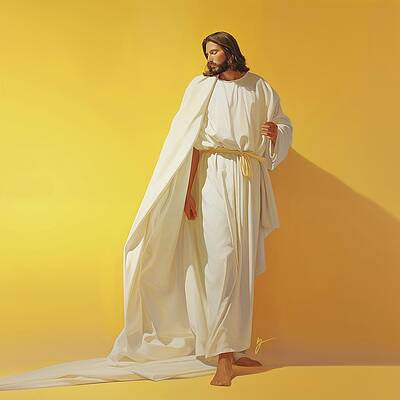In Matthew’s
account of the Sermon on the Mount, we read that Christ said to His disciples
and members of His Church: “Ye are the light of the world” (Matthew 5:14) but when
speaking to the Nephites, the Book of Mormon records that He said: “ I give
unto you to be the light of this people” (3 Nephi 12:14).
The
variation is clear, the Saviour was not saying that we are the light just by
virtue of having the truth, but that we are commanded to be the light,
to light the path for others to see the way to salvation by our example of good
works, charitable deeds and Christ-like characters. In other words, by what we
have become because we follow the Master of perfection.
This is a
tall order considering many of us are struggling to live the Gospel in the first
place which depletes our reservoir of self-confidence and fosters self-doubt. Some
of us consider we are never good enough for someone else to follow.
One year as
I studied the New Testament, I was amazed at the confidence and bravery with
which Jesus, over and over, testified of himself as the Son of God and Saviour
of the world. One example of this remains with me still.
During His
active ministry, Jesus and his disciples celebrated the Jewish feasts, one of
which was the Feast of the Tabernacles.
At the
close of the first day of this feast, amid ritualist pageantry, while hymns and
songs of praise were sung, the blowing trumpets and dancers holding flaming
torches in their hands, four of the sons of Levi lighted the four great golden
candelabras. Amid the shining light of the temple that was lighting up every
court in Jerusalem dispelling the darkness, stood up Jesus and proclaimed: “I
am the light of the world: he that followeth me shall not walk in darkness, but
shall have the light of life” (John 8:12). (see also The Mortal Messiah 1 by
Bruce R. McConkie, p 180)
Imagine the
fortitude to stand up and proclaim yourself the Saviour of the world to a
people who thought you were possessed of a devil and sought to kill you (John
7:19,20). This he had to testify to the people who expected the Messiah to come
as the King of Glory (Isaiah 9:6,7), knowing that they would reject the
Suffering Servant (Isaiah 53:11) who would come first. Was there, however, a
better opportunity for Him to proclaim himself as the light of the world?
We might
say that it was easy for Jesus, knowing explicitly who He was, to have the
confidence to be the ultimate light on a hill, and that we mere mortals, in our
weakness cannot be expected to do the same, nevertheless, the mandate stands
and to make it easier, here is the key:
“The closer
you draw to our Heavenly Father, the more His light and joy will shine from
within you. Others will notice that there is something unique and special about
you. And they will ask about it” (Elder Dieter F. Uchtdorf, Missionary Work:
Sharing What Is In Your Heart, General Conference April 2019).
Do you know
of anyone who was closer to Heavenly Father than Jesus was? He repeatedly
stated He and the Father are one, therefore, if there is light in one, there is
light in the other. Those who believed in Christ saw this light in Him…..but
this light is not exclusive to the Godhead but to all who would glorify Him that
they ‘may be one’ with the Father and the Son (John 17:20,21; 3 Nephi 19:28,29).
Should
the stars fall from heaven,
And
the sun refuse to give its light;
Should
the earth become the darkest night,
You
would ever be my only guiding light.
- CATHRYNE ALLEN
(Art: Lord of Light by Chris Brazelton)












